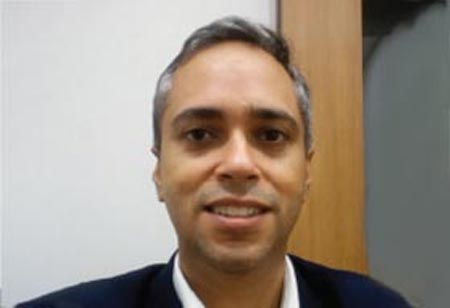Changing Face Of Healthcare: Companies For Digital Health & Social Impact
By Sachin Malhotra, CEO, Tech Care for All

Sachin Malhotra, CEO, Tech Care for All
Sachin is a techno-commercial entrepreneur who has established and successfully brought to market, companies in India and US that are focused on healthcare.
In many nations, particularly low and lower middle income countries there is an enormous toll of early death and needless suffering simply because people lack access to basic healthcare. Like other lower-middle income countries, India struggles with:
• Huge inequities in access to healthcare between urban and rural areas and between rich and poor (India’s population is 34 percent urban and 66 percent rural, while its distribution of doctors is exactly the reverse).
• Reduced quality of care because doctors have poor access to training, supervision and up-to-date medical knowledge
• Inefficient and often ineffective paper-based medical record-keeping
Each of these problems can be solved or substantially improved through digital health technologies. Digital technologies promise to make healthcare more integrated and cost-efficient, keep doctors better informed of medical literature, and empower patients to be much better connected to their care. From distance learning and electronic medical records to telemedicine and patient messaging, digital health also provides much better capacity to reach rural, remote and underserved populations.
India is recognized worldwide for its galloping economy and IT leadership. The country’s health marketplace is robust and diversifying, with a burgeoning number of social impact companies. These companies explicitly strive to meet health needs that are not currently being met by traditional market solutions. They are reinventing products and processes while bringing new skills to the fore.
But can this new breed of company successfully combine social purpose with profit, to sustain growth, development and investor expectations?
Disruption in Healthcare Spurred by the Demands of Universal Health Coverage (UHC)
The Government of India’s recent launch of ‘Ayushman Bharat’-the National Health Protection Scheme is seen as a major initiative to accelerate Universal Health Coverage (UHC). Ayushman Bharat provides health insurance to 10 crore (100 million) families in India.
Yet, it is clear that Universal Health Coverage cannot be achieved without digital health innovation.
Along with Ayushman Bharat, the government has allocated some Rs.3000 crore ($440 million) to accelerate the country’s digital transformation through artificial intelligence (AI), the [medical] Internet of things (IoT/ IoMT), blockchain and 3D printing, all of which are essential to enabling a modern technology landscape in healthcare delivery.
Digital Innovation Remaking Healthcare and India’s Exciting Trend in Social Impact Businesses
As national and state governments strive for UHC and a more equitable public health system, private sector players are critical to drive innovation, improve efficiency, increase transparency and ultimately decrease out-of-pocket healthcare expense for Indians, which at 60 percent is among the world’s highest.
Digital health is a huge market in India with a profusion of commercial firms of all sizes and shapes competing in the marketplace. Many newer companies have successfully raised capital from investment majors in India and internationally. The telemedicine market alone is growing at over 20 percent CAGR and may surpass $32 million by 2020.
What’s especially exciting is the growth in social impact businesses--also called social enterprises. These companies make it a core part of their business model to generate positive social impact by focusing on unmet societal needs. This translates into finding new ways to extend quality care to patients who are poor, far from urban centers or otherwise disadvantaged.
Maharashtra Making Moves
With a population between 15 and 20 million, with more than 50 percent living in impoverished settlements, Mumbai has one of the largest concentrations of low income households needing access to affordable, highquality healthcare.
Consider Neurosynaptic Communications. Founded in 2002 by Sameer Sawarkar and Rajeev Kumar, Neurosynaptic’s corporate mission is to enable access to quality and affordable healthcare to the masses in rural and remote areas through technology. The company sells subscriptions to a cloud-based, point of care diagnostic equipment and telemedicine solution called ReMeDi (Remote Medical Diagnostics), which enables teleconsultation, capture and transmission of a number of physiological parameters, and electronic documentation. Deployed in 2,200+ centers, ReMeDi brings healthcare access within reach to more than 50 million people. Wherever they live, Maharashtra residents can be connected by ReMeDi to the best care available, even at such leading facilities as Mumbai’s Nanavati Super Specialty Hospital.
Tech Care for All (TC4A) where I serve as India CEO, is a social impact company fully dedicated to harnessing digital technology to improve health among under-served populations in India and sub-Saharan Africa. Tech Care for All’s digital portfolio addresses the full journey from wellness and prevention to diagnosis, treatment, support and follow up. From its base in Mumbai, Tech Care for All is commercializing a range of practical products that increase people’s access to affordable, high-quality care, from connected diagnostics to peer-to-peer consultation platforms to help doctors make better decisions in complex cases. The company is uniquely structured around unique combined experience in healthcare, technology, and strategy consulting from both private and NGO sectors.
Growth of Impact Investing to Fund Digital Businesses with Social Purpose
Impact investing-for dual social and financial returns-is gathering momentum in India, with digital health among the areas drawing attention. Between 2010 and 2016, India attracted over 50 active impact investors, who committed more than $5.2 billion.
One such firm investing in digital health for social impact is Kois Invest. Headquartered in Mumbai and Brussels, Kois’s mission is to leverage our business skills, investment expertise and global networks to scale sustainable solutions that have the potential to generate lasting positive societal impact and deliver attractive financial returns. Aside of its asset management activities, the firm also structures innovative social finance instruments such as impact bonds.
It’s a heady time. I am convinced that India’s distinctive combination of vigorous markets and digital innovators with high social needs in healthcare spells sustained growth in digital health social business, powered by an enthusiastic investment community.




